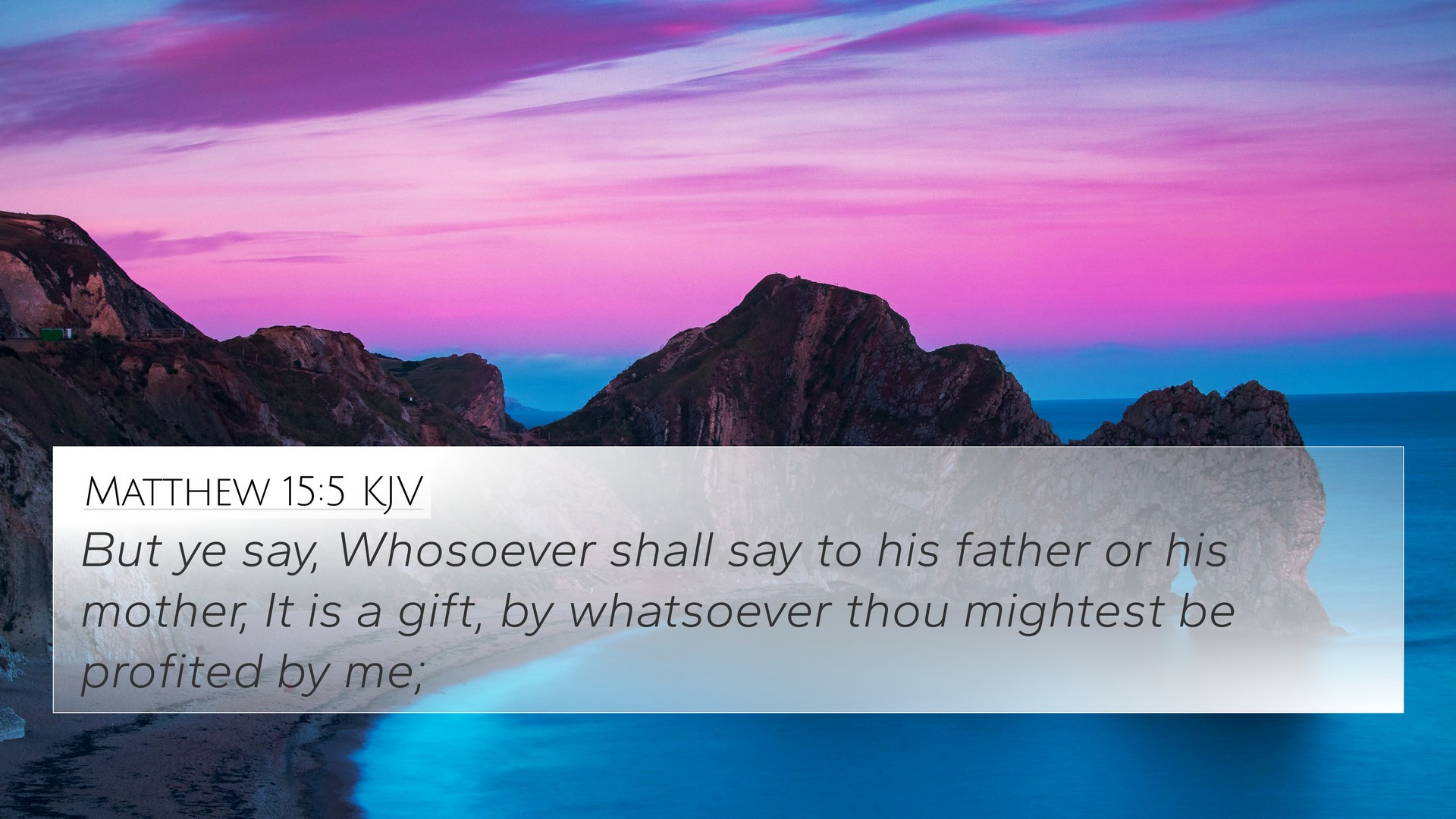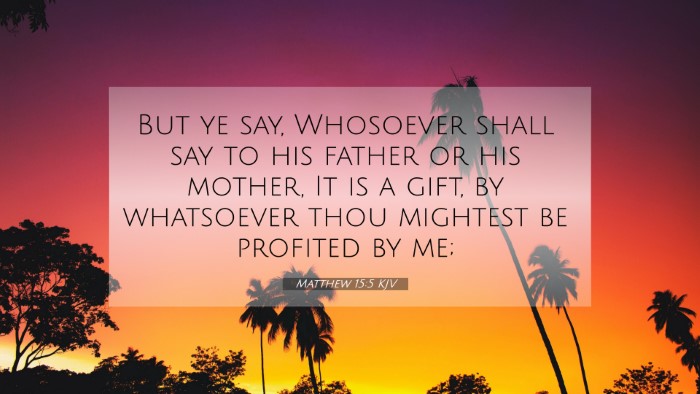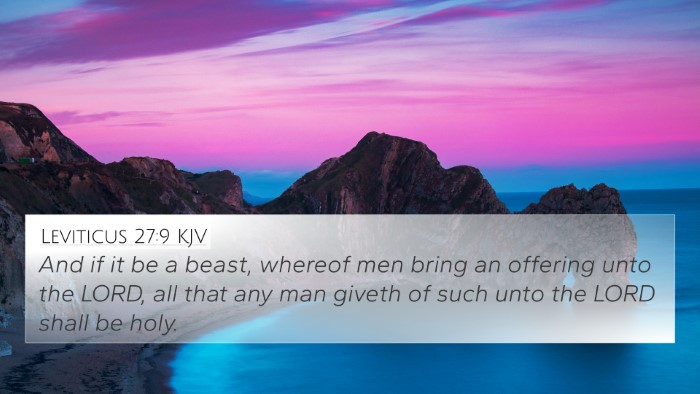Understanding Matthew 15:5
Matthew 15:5 states, "But you say, ‘If anyone tells his father or his mother, “Whatever you would have gained from me is given to God,”’ he need not honor his father." This verse addresses the conflict between human traditions and divine commandments, particularly in the context of familial obligations.
Summarized Meaning
The verse reveals how the Pharisees and scribes had allowed their traditions to override the clear commandment of God regarding honoring one’s parents. Jesus points out that they had created a loophole that allowed them to escape their responsibility to care for their family by devoting their resources to the temple instead.
Insights from Commentaries
- Matthew Henry: He emphasizes the hypocrisy of the religious leaders, noting that they esteemed their tradition above God's commandments. Henry argues that this practice was a gross violation of the moral law, which mandates honoring parents (Exodus 20:12).
- Albert Barnes: Barnes elaborates on the implications of the term “Corban,” explaining that when someone declares something as a gift to God, it was seen as a way to excuse them from supporting their family. He underscores the importance of the heart’s intention in worship and service.
- Adam Clarke: Clarke provides a cultural context, stating that this tradition originated from a well-meaning intention to dedicate funds to God, yet it distorted the true meaning of piety. He insists that family obligations should not be neglected under any circumstance.
Bible Verses Cross-References
- Exodus 20:12: "Honor your father and your mother, that your days may be long in the land that the Lord your God is giving you." This verse commands the respect due to parents.
- Mark 7:11-12: A parallel account that reinforces Jesus' teaching regarding human traditions undermining God’s laws.
- Leviticus 20:9: "For anyone who curses his father or mother shall surely be put to death." It highlights the gravity of the command to honor parents.
- 1 Timothy 5:8: "But if anyone does not provide for his relatives, and especially for members of his household, he has denied the faith and is worse than an unbeliever." This stresses the importance of fulfilling familial responsibilities.
- Isaiah 29:13: "And the Lord said: ‘Because this people draw near with their mouth and honor me with their lips, while their hearts are far from me...’" It critiques superficial worship that lacks true devotion.
- Luke 14:26: "If anyone comes to me and does not hate his own father and mother and wife and children and brothers and sisters, yes, and even his own life, he cannot be my disciple." This stresses the priority of God's call over familial ties when they conflict.
- Colossians 3:20: "Children, obey your parents in everything, for this pleases the Lord." This reinforces the imperative of honoring family, aligning with the teachings of Jesus.
Thematic Bible Verse Connections
This passage serves as a profound reminder of the tension between established traditions and the heart of God's commandments. It calls for a reflective examination of how one’s spiritual practices may be contrary to the ethical imperatives laid out in Scripture.
By employing tools for Bible cross-referencing, one can draw connections between this verse and other Biblical texts that emphasize the covenantal obligation to family, offering a comprehensive perspective on the core values of honoring one's parents.
Conclusion
Matthew 15:5 encapsulates the essential lesson of prioritizing God’s command over human traditions. It invites believers to engage in cross-referencing these themes throughout Scripture, exploring inter-Biblical dialogue which reinforces the unity and continuity of God's revelations concerning family, honor, and piety.
Further Study Suggestions
- Explore the history of the Corban tradition and its implications in Jewish law.
- Conduct a comparative study of the Gospels to observe different encounters Jesus had with the Pharisees.
- Analyze the role of cultural practices and their impact on faith in contemporary settings.
- Engage in prayerful meditation on how to honor parents while also being faithful to God’s call.









